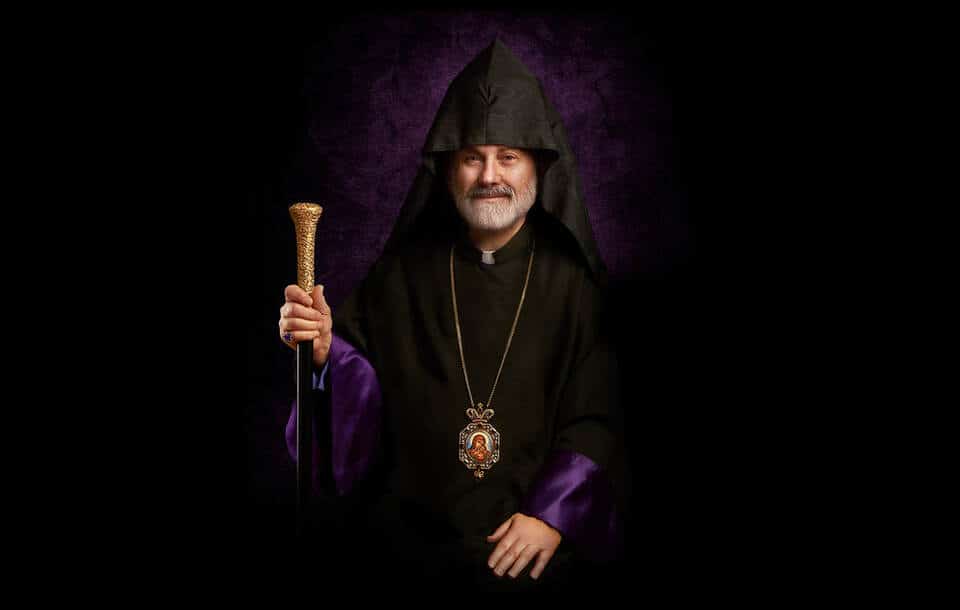(The Prelate’s Message, November 26)
Last Thursday, as a grateful nation to the Almighty Lord’s abundant blessings, the United States of America celebrated the feast of Thanksgiving. Even though the holiday took place under unusual circumstances this year, nevertheless the spirit of the celebration was the same, collectively to thank the Lord. As much as this feast reflects a social character as a result of the changing social perception of the world, nevertheless the expression of thanksgiving has been planted in human nature since the beginning as a daily response to all the benefits which we enjoy.
Our Lord Jesus Christ is the role model of a thankful heart. Every word that He said, every kind act that He performed, and every lesson that He taught is reflective of a thankful quality. When we carefully follow His teaching and observe His miracles, we witness how thankful He was in thought, word, and deed. We read in the Gospel according to Saint Luke that when the disciples, after accomplishing a mission gladly reported the details to Jesus, our Lord thankfully commended them. Then the Evangelist records: “At that same hour Jesus rejoiced in the Holy Spirit and said, ‘I thank you, Father, Lord of heaven and earth, because you have hidden these things from the wise and the intelligent, and have revealed them to infants’” (Lk 10:21). Prior to resuscitating Lazarus, Jesus looking upward, says: “Father, I thank you for having heard me. I know that you always hear me, but I have said this for the sake of the crowd standing here” (Jn 11:41). During the Last Supper, Jesus taking the bread, gave thanks, and then breaking it, gave it to the Disciples, saying: “Take. Eat. This is my Body” (Lk 22:19). Then taking the cup, He again gave thanks, and giving it to the disciples, says: “Drink from this all of you. This is my Blood” (Mt 26:27).
The Divine Liturgy, the energizer of our spiritual life, is full of the spirit of thanksgiving. One of the first Psalms recited at the beginning of the Badarak commands that we should “enter into His gates with thanksgiving and praise Him” (Ps 100:4-5). Following the Kiss of Peace, the deacon invites the congregation “to give thanks to the Lord wholeheartedly.” Prior to the Sanctus, the celebrant recites a prayer in silence, and while he raises the holy bread and cup, he repeats the very words of Jesus recorded in Holy Scripture that the Lord took the bread and wine, and gave thanks. Following the invocation of the saints and remembering the name of living Pontiff, the Deacon sings, “we render thanks and glory to you, O Lord, our God, for this holy and immortal sacrifice.” Following the Eucharist, the deacon invites us once again to thank the Lord for partaking the Mystery, the choir sings “We thank you, O Lord, for having nourished us from your immortal table, ” and the celebrant prays in silent, “I thank you O Lord, that you have granted us this tasting of your goodness for holiness of life.” What a wondrous, three-part harmony that the deacon, the choir together with the people, and the celebrant offer thanks from the heart to God the Creator who is to be thanked in all things and for all things!
As we witness, every Sunday the Divine Liturgy is a feast of Thanksgiving for Creation, for our Redemption, and in anticipation of the Parousia full of Love and Life. By participating in this sacred Banquet and by partaking of Holy Communion, Thanksgiving becomes the most natural and joyful rhythm of our body, our mind, and our soul in our sacred pilgrimage from life to Life.
In our daily life the primary reason to thank the Lord, from whom we receive unlimited bounties, is that God created us for an ultimate good purpose that is beyond our understanding, and we are privileged to communicate with Him at any time and in any place. In our human relationship, whenever we receive an unexpected gift, favor, or promotion, our first reaction is to be grateful.
Hence, if we take into consideration that our existence itself is the tangible manifestation of Divine Love (regardless of our unworthiness), so that in all circumstances we are granted access to God, whether in times of joy or sadness, success or failure, and that we can communicate with Him in the form of appreciation or complaint; is this not an exceptional and amazing privilege for each and every one of us? What other kind of response can there from the created to the Creator except true thanksgiving?
A heart full of gratitude, as much as it is a gentle behavior toward others, first generates a positive spirit and serenity in the soul and mind of the person. It frees us from all negative powers and worries which, like rust, corrode and deplete our positive energy, outlook, and behavior. St Paul, knowing the impact of thankfulness, commands his faithful, saying: “Whatever you do, whether in word or deed, do it all in the name of the Lord Jesus, giving thanks to God” (Col 3:17).
Thankfulness reenergizes us to enjoy each moment of our existence, and makes us conscious, on our way toward perfection, to be glad for what we have while we strive for the better. Thankfulness reenergizes us not to deviate from our ultimate goal because of worldly circumstances, but instead to walk the Way of the Cross with the clear and firm vision of the Resurrection.
And finally, Thankfulness cheers up our entire existence, and as the author of the Proverbs states: “He who has a cheerful heart has a continual feast” (Prov. 15:15).
By converting our working bodies, our beating hearts, our thoughtful minds, and our soaring spirit in their natural course into Divine Thanksgiving, let us all glorify the All-Holy Trinity. Amen.

